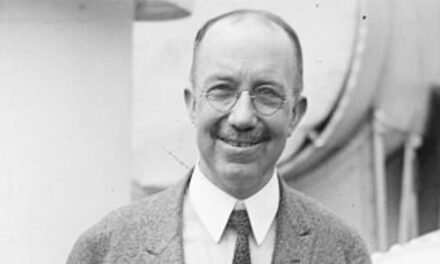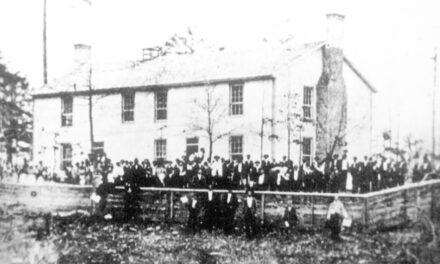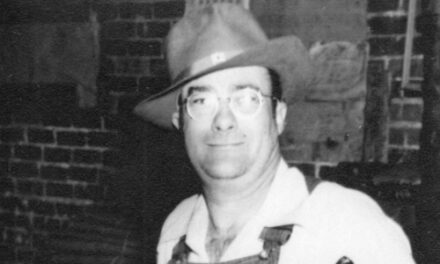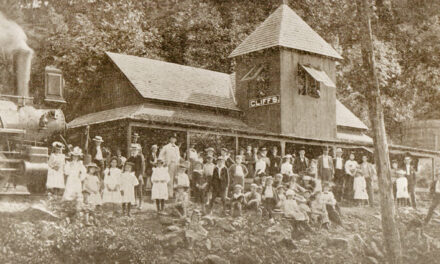
Have you ever eaten anything for 30 days straight? I’m not really sure about the point of doing that, other than to prove you can.
Long before one of Hickory’s most significant literary figures came to town, he was famous for the fact that in 1876, he ate a quail every day for a month. It was the result of a bet that garnered national news coverage. Could Colonel Marcellus Eugene Thornton, in the days before he met and married Elizabeth Thornton who was the second major owner of Harper House, down 30 birds in 30 days and survive the experience?
It seems that in the year of the nation’s centennial anniversary, quail (sometimes referred to as partridge) eating had become fashionable to the point of turning into a fad. Others had tried the daily diet and failed. In an Atlanta restaurant on February 28, Marcellus dug into a quail with the intention of repeating the same order for the next month.
Everything went well for the first dozen meals. Regularly, articles appeared in the paper about how the Colonel’s gastronomy was doing. If anyone wondered, Thornton, a reporter himself, offered a bird’s-eye view of what it was like to be faced with the same, gamey lunch. He told readers that “for the first six or eight days no symptoms of nausea appear.” But then, he admitted “no matter how nicely prepared,” and he had his choice of how, something “begins to smell wrong.” By the 13th quail, he was in trouble. Now he understood why no one had ever successfully completed the task. Their stomachs were just not strong enough to withstand the daily assault.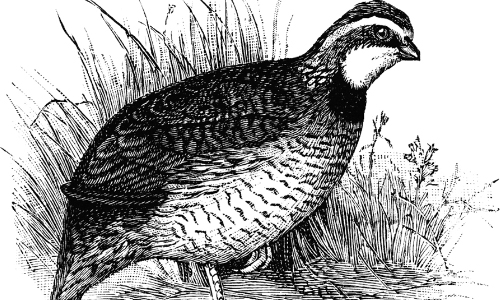
Ever the optimist, Colonel Thornton persisted. He believed that if he got through the 15th, a particularly tough one, “the savory 16th remains in its warm bath of rich, brown gravy.” Appetizing, eh? He planned for the 23rd bird to be fried, while the 24th was barbecued, anything to help him get to the last one. He even had a strategy for tricking his body not to revolt. Offering advice on how it could be done, Marcellus suggested swallowing a bit of tobacco juice to settle the stomach before a plate of quail was laid before him. The cure might have been worse than the disease, but Thornton swore by it.
Finally, on March 30th, (147 years ago to this day) he began the last one. It looked as though Marcellus had attained a perch (as you have likely noticed, it’s not my first bad pun here) of succeeding in becoming a rather rare bird himself. At 9:30 that morning, he tucked in his napkin and grabbed knife and fork, but had trouble swallowing the winning bite. Onlookers whispered how “he was noticed to be growing sick.” He left, mid-meal and ran to a nearby grocery store. There, he got an apple and orange, ate both and returned to the table. Thornton finished his plate.
He was so elated over his conquest of the quail that when a large crowd gathered at noon, he ate another. The Colonel would suffer to please an any audience interested in him. Reportedly, money changed hands all over the country as the result of Thornton’s fortitude. Wagers in “New Orleans, Chicago, St. Louis, Omaha, Louisville, Cincinnati, Philadelphia, New York and even in virtuous Boston” as well as his hometown at the time, Atlanta, were paid off as the result of the triumphant challenge. Though supposedly $200 was on the line, Marcellus got just $20 for his digestive exploit.
Actually, what he got was worth more than money to him. Colonel Marcellus E. Thornton gained name recognition, a commodity that he would attempt to capitalize upon in his subsequent career. We shall see how that worked out next week.
Photo: Quail, in the wild. Colonel Thornton’s meal for a month. Shortages of the bird occurred in restaurants as the result of his stunt.



